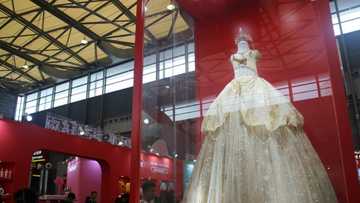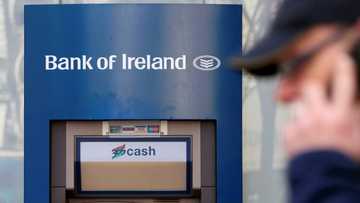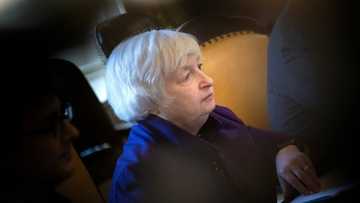Exploring the characteristics and functions of money, plus the qualities of good money
Almost everyone dreams of financial freedom to allow them to make decisions based on things that bring joy to their lives. Money makes the world go round. People work hard and smart to get lots of money but seldom think about the characteristics of money in detail. What are the qualities of good money?

Source: UGC
Money is a powerful tool if you know how to use it well. Various characteristics of money make it powerful and worth working hard for in today's world.
Characteristics of money
Have you ever thought about the characteristics of money in economics? Well, there have been many forms of money in history.
Some forms have worked better than others because they have characteristics that make them more useful. Learn more below.
What is money?
It is important to know what money is before looking at its characteristics. In simple terms, money is a medium of exchange that allows people and businesses to obtain what they need to live and thrive.
Did you know money is an intangible concept while currency is a tangible concept? The coins and bills people carry are currency, not technically money.
In the past, precious metals, including silver and gold, were powerful tools of exchange. In the contemporary world, money has become far more intangible. It is mainly defined by the functions it can fulfil.
Types of money
Money is something determined by market participants to have value and be exchangeable. As a result, there are different types of money in the market, as explored below.
- Commodity money: This is a good that can be used as money. It is a medium exchange with intrinsic value because of its use for purposes other than money, e.g., silver and gold.
- Commercial banks money: This is money created in an economy through debt issued by commercial banks. Banks normally take client deposits into savings accounts and then loan part of it to other clients to create more money.
- Fiat money: This is a medium of exchange backed by the government and nothing else. Its value comes from a government decree that officially recognises it as a medium of exchange.
- Fiduciary money: This is a form of money where parties accept something as a medium of exchange in a transaction. It is not recognised as a legal tender by the government, and people are not obligated to accept it as a form of payment under the law.

Source: UGC
What are the characteristics of money?
There are several characteristics or qualities of good money, as explored below.
Durability
Durability means money must be a thing of continued use. A cow is fairly durable if used as a medium of exchange. However, a long trip to the market comes with the risk of sickness or death, which can severely reduce its value. Therefore, a cow is not a durable medium of exchange.
For paper money that is commonly used, it must be resistant to wear and tear over time. In today's world, online transactions are common.
Portability
Good money should be easy to move from one point to another. Coins and banknotes are easier to carry than a cow (as used in the previous explanation).
General acceptability
General acceptability means that the form of currency must be generally distributed, and people accept it without any hesitation. People cannot accept a medium of exchange that cannot be put into circulation later.
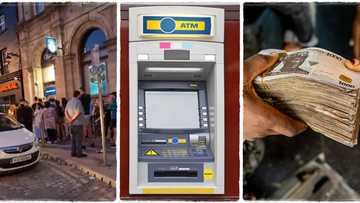
Read also
"Turn ATM Off": Error in banking services allows customers with no money in their account to withdraw N833k
Divisibility
If someone wants to buy a smaller unit of a commodity, the divisibility of money can make it possible. In Nigeria, for example, Naira notes come in denominations of ₦5, ₦10, ₦20, ₦50, ₦100, ₦200, ₦500, and ₦1000. ₦1 can also be broken down into kobo.
Homogeneity
Money must be homogeneous. This means that two ₦200 notes must look and feel identical. They must also have the same value. If money is not homogeneous, transactions will become uncertain.
Stability
The value of a good medium of exchange should change for a long period of time. It should remain stable. If its value keeps changing, it will fail to function as a measure of value.
Cognoscibility
A good medium of exchange should be recognisable, i.e., people should be able to identify it from previous encounters or knowledge. If it is not cognisable, people will find it challenging to determine if they are dealing with money or another inferior asset.
Scarcity
Money must be scarce or limited in supply. The more money is seen around in the hands of people, the more it gradually loses value. This is the reason the currency of some countries has a higher value than the currency of other countries.

Source: UGC
Functions of money
There are multiple functions or uses of money in today's world. These uses are explored below.
- Medium of exchange of items of value: This is the primary function of money. People use it as a good worth exchanging various items of value, e.g., an adult male goat has a value of between ₦20k and ₦25k per kilogram if bought directly from farmers' markets.
- Unit of account: Money is used to keep track of changes in the value of items over a period. People often use it to compare the value of various goods and services. It is used to account for profits and losses, value the total assets of a firm, and balance budgets.
- Store of value: In most transactions, money is inherently future-oriented. It offers a way of storing monetary value for use in the future without the value deteriorating.
- Standard of deferred payment: Money is normally used to transfer value over different time periods in the form of credits and debts. People borrow money for an agreed-upon period of time and repay it with interest at a future date.
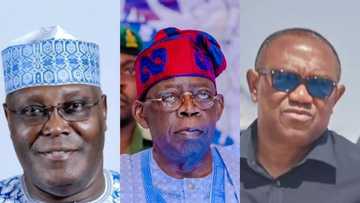
Read also
"They are planning to sell fuel for N720 per litre": Political analyst lambasts Atiku, Peter Obi
What is the definition of money?
Money refers to a medium of exchange that is centralised, recognised, and generally accepted in a country or countries. It facilitates transactions of services and goods.
What are the main functions of money?
The primary functions of money are a medium of exchange of services and goods, a unit of account, a store of value, and a standard of deferred payment.
What are the types of money?
The various types of money are fiduciary, fiat, commercial banks, and commodity money.
There are various characteristics of money that must be considered before using it as a medium of exchange. Everyone should understand these qualities to be able to manage their finances.
Legit.ng recently published the functions of NAFDAC and NDLEA. NAFDAC stands for the National Agency for Food and Drug Administration and Control, while NDLEA stands for the National Drug Law Enforcement Agency.
NAFDAC and NDLEA are regulatory agencies in Nigeria responsible for different public health and safety aspects. NAFDAC focuses on regulating the quality of consumable products, while NDLEA concentrates on combating drug-related crimes and their negative impact on society.
Source: Legit.ng

Cyprine Apindi (Lifestyle writer) Cyprine Apindi is a content creator and educator with over six years of experience. She holds a Diploma in Mass Communication and a Bachelor’s degree in Nutrition and Dietetics from Kenyatta University. Cyprine joined Briefly.co.za in mid-2021, covering multiple topics, including finance, entertainment, sports, and lifestyle. In 2023, she finished the AFP course on Digital Investigation Techniques. She received the 2023 Writer of the Year Award. In 2024, she completed the Google News Initiative course. Email: cyprineapindi@gmail.com

Adrianna Simwa (Lifestyle writer) Adrianna Simwa is a content writer at Legit.ng where she has worked since mid-2022. She has written for many periodicals on a variety of subjects, including news, celebrities, and lifestyle, for more than three years. She has worked for The Hoth, The Standard Group and Triple P Media. Adrianna graduated from Nairobi University with a Bachelor of Fine Arts (BFA) in 2020. In 2023, Simwa finished the AFP course on Digital Investigation Techniques. You can reach her through her email: adriannasimwa@gmail.com


